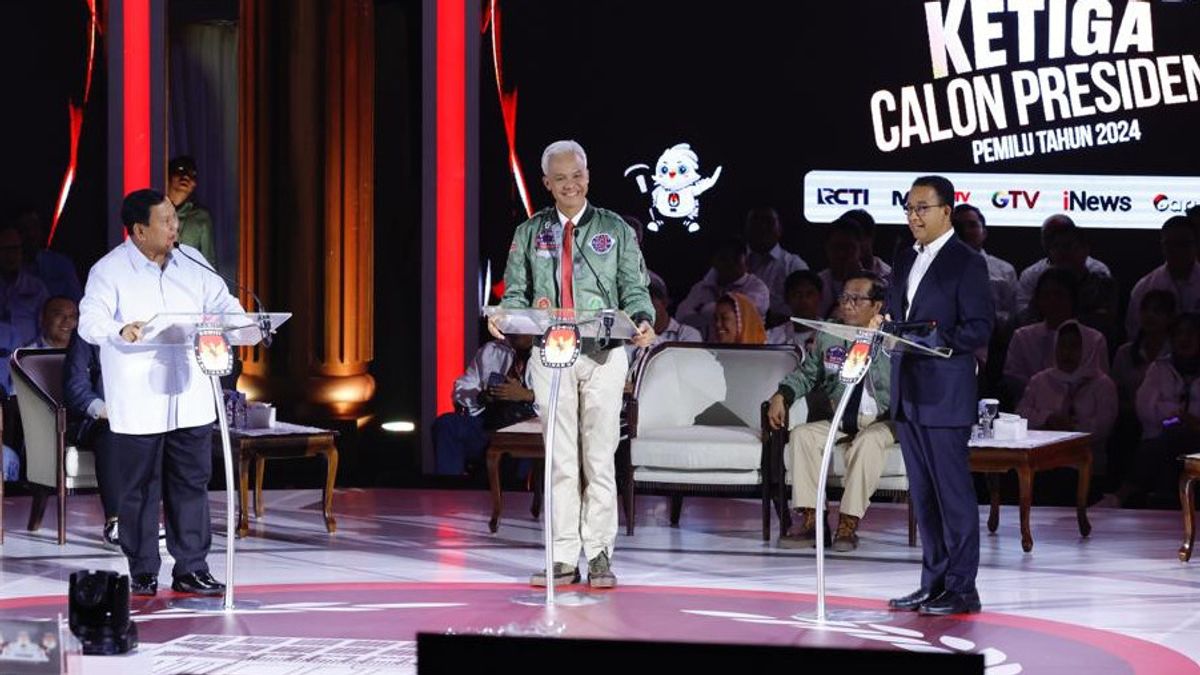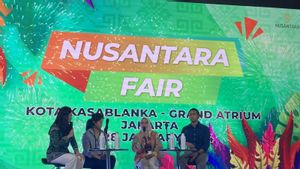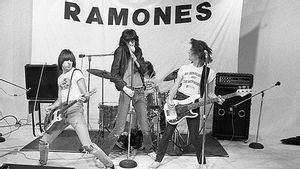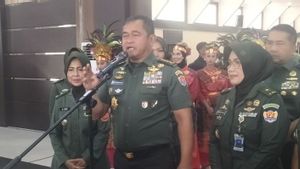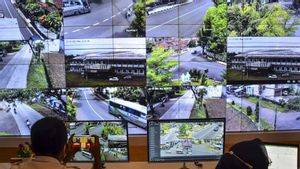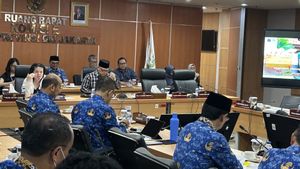JAKARTA - Ahead of the fifth debate of the 2024 Presidential Election, Sunday 4 February, the General Elections Commission (KPU) claimed to have successfully organized four previous debates. This can be seen from the enthusiasm of the public raising issues in the debate to everyday talks. "After the debate, the issues raised will be further explored in dialogue by various groups of people or television stations, providing a deeper understanding," said KPU commissioner, August Mellaz Sunday, January 28. Agust Mellaz acknowledged the existence of public opinion on time constraints in the debate that made it difficult for participants to provide deep elaborations regarding the theme of debate, vision and mission, and work programs. With a debate session that only lasted for 120 minutes, Mellaz said candidates often gave a reexplanation regarding their answers. However, he said it was impossible to make a change in the format in this final debate. "The change in format is not possible because this was the last debate. The KPU has carried out the debate four times and received appreciation from various parties," said Mellaz.Mellaz conveyed that public enthusiasm for the presidential election debate was very high, as seen from the analysis of the KPU monitoring media. Mellaz emphasized that the presidential election debate was one of the campaign methods given by the KPU to potential participants. "This has succeeded in creating extraordinary enthusiasm from various circles of the community," he said. Melez emphasized that the debate also included campaign activities provided by the KPU from January 21 to February 10. "The campaign method varied, including campaign campaigns accessible through the barcode vision of political party missions, candidate pairs, even candidate pairs. Special candidates in each electoral regions. This does not only apply nationally," he said.
SEE ALSO:
The fifth debate for the 2024 presidential election, which will take place on February 4, will be attended by three presidential candidates, namely Anies Baswedan, Prabowo Subianto, and Ganjar Pranowo. The theorems to be discussed include social welfare, culture, education, information technology, health, employment, human resources, and inclusion.
The English, Chinese, Japanese, Arabic, and French versions are automatically generated by the AI. So there may still be inaccuracies in translating, please always see Indonesian as our main language. (system supported by DigitalSiber.id)
